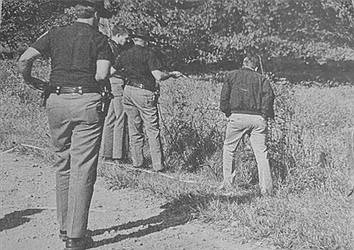Breaking Down Barriers: "Shining a Light on Maternal and Infant Health: Challenges, Opportunities, and Solutions in Rural Communities”
February 9, 2024 at 10:25 a.m.
This article is a part of a year-long series, made possible by the "Together We Will" Grant. Since July of last year, we have been casting a spotlight on two out of the three most pressing health crises in our rural communities: Substance Use Disorder and Mental Health. This week, we will transition to the final topic of Infant and Maternal Mortality. Through deeply personal stories and expert insights, we aim to humanize these issues, drive conversation, and spark action toward a healthier future.
During this portion of the series will explore the challenges and opportunities in ensuring women in our local communities have access to comprehensive and high-quality maternal healthcare. We will examine the unique challenges faced by women in different parts of our region and contexts and highlight innovative approaches to improving maternal health outcomes.
What is Maternal Health?
Maternal health refers to women's health during pregnancy, childbirth, and postnatal. Each stage should be a positive experience, ensuring women and their babies reach their full potential for health and wellbeing, as maternal health is a crucial aspect of any community's wellbeing. In rural areas such as ours, ensuring mothers receive the care they need, as described above, is particularly challenging. Rural communities often lack the resources and infrastructure necessary to provide adequate maternal healthcare, leading to higher rates of maternal mortality and morbidity.
Challenges of rural maternal health
One of the main challenges in rural maternal health is access to care. Many rural areas have limited healthcare facilities and transportation options, making it difficult for pregnant women to access prenatal care and deliver their babies in a safe environment. This lack of access can be especially dangerous in emergency situations, such as a complicated delivery or a severe pregnancy-related complication.
Another obstacle is the lack of trained healthcare professionals in rural areas. Obstetricians and gynecologists are often in short supply, leaving primary care physicians and midwives to handle complicated pregnancies and deliveries. While these healthcare providers are often highly skilled and experienced, they may not have access to the latest medical technologies or resources to address certain maternal health issues.
In addition to these challenges, rural areas often face socioeconomic barriers to maternal health. Many rural families face poverty and lack access to health insurance, which can make it difficult to afford prenatal and postnatal care. This can lead to untreated pregnancy-related complications and chronic health conditions that can have long-term effects on both the mother and the child.
Despite these challenges, there are steps that can be taken to and resources to aid in Maternal Health. Over the next few weeks we will delve into the resources available to young mothers right here in our communities.
Maternal Mortality
According to the World Health Organization, The most common direct causes of maternal injury and death are excessive blood loss, infection, high blood pressure, unsafe abortion, and obstructed labor, as well as indirect causes such as anemia, malaria, and heart disease. Most maternal deaths are preventable with timely management by a skilled health professional working in a supportive environment.
Infant Mortality in Indiana
Infant Mortality is defined as the death of a baby before his/her first birthday. According to the Indiana Department of Health (IDOH) 536 Hoosier babies died before their 1stbirthday in 2021 (most recent stats available). Nearly 45 babies EVERY month, About 10 babies EVERY week. More than 2,700 infant lives have been lost in the last 5 years.
Latest News
E-Editions
Events
This article is a part of a year-long series, made possible by the "Together We Will" Grant. Since July of last year, we have been casting a spotlight on two out of the three most pressing health crises in our rural communities: Substance Use Disorder and Mental Health. This week, we will transition to the final topic of Infant and Maternal Mortality. Through deeply personal stories and expert insights, we aim to humanize these issues, drive conversation, and spark action toward a healthier future.
During this portion of the series will explore the challenges and opportunities in ensuring women in our local communities have access to comprehensive and high-quality maternal healthcare. We will examine the unique challenges faced by women in different parts of our region and contexts and highlight innovative approaches to improving maternal health outcomes.
What is Maternal Health?
Maternal health refers to women's health during pregnancy, childbirth, and postnatal. Each stage should be a positive experience, ensuring women and their babies reach their full potential for health and wellbeing, as maternal health is a crucial aspect of any community's wellbeing. In rural areas such as ours, ensuring mothers receive the care they need, as described above, is particularly challenging. Rural communities often lack the resources and infrastructure necessary to provide adequate maternal healthcare, leading to higher rates of maternal mortality and morbidity.
Challenges of rural maternal health
One of the main challenges in rural maternal health is access to care. Many rural areas have limited healthcare facilities and transportation options, making it difficult for pregnant women to access prenatal care and deliver their babies in a safe environment. This lack of access can be especially dangerous in emergency situations, such as a complicated delivery or a severe pregnancy-related complication.
Another obstacle is the lack of trained healthcare professionals in rural areas. Obstetricians and gynecologists are often in short supply, leaving primary care physicians and midwives to handle complicated pregnancies and deliveries. While these healthcare providers are often highly skilled and experienced, they may not have access to the latest medical technologies or resources to address certain maternal health issues.
In addition to these challenges, rural areas often face socioeconomic barriers to maternal health. Many rural families face poverty and lack access to health insurance, which can make it difficult to afford prenatal and postnatal care. This can lead to untreated pregnancy-related complications and chronic health conditions that can have long-term effects on both the mother and the child.
Despite these challenges, there are steps that can be taken to and resources to aid in Maternal Health. Over the next few weeks we will delve into the resources available to young mothers right here in our communities.
Maternal Mortality
According to the World Health Organization, The most common direct causes of maternal injury and death are excessive blood loss, infection, high blood pressure, unsafe abortion, and obstructed labor, as well as indirect causes such as anemia, malaria, and heart disease. Most maternal deaths are preventable with timely management by a skilled health professional working in a supportive environment.
Infant Mortality in Indiana
Infant Mortality is defined as the death of a baby before his/her first birthday. According to the Indiana Department of Health (IDOH) 536 Hoosier babies died before their 1stbirthday in 2021 (most recent stats available). Nearly 45 babies EVERY month, About 10 babies EVERY week. More than 2,700 infant lives have been lost in the last 5 years.





